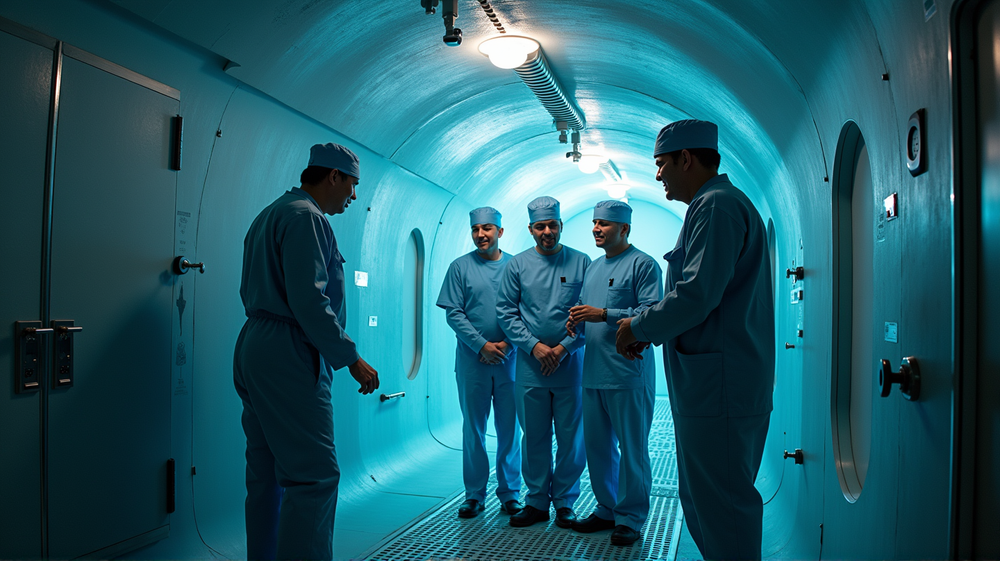In the heart of the University of South Florida’s (USF) bustling research community, a groundbreaking clinical trial is underway. At its helm are individuals whose experiences go beyond textbooks and labs. These are the veterans — service members channeling their remarkable resolve and expertise into investigating the potential of hyperbaric oxygen therapy (HBOT) to transform treatment standards for traumatic brain injuries (TBI) and post-traumatic stress disorder (PTSD).
Veterans Lead the Way
The $28 million study, directed by Dr. Harry van Loveren at the Morsani College of Medicine, is not just about scientific ambition. It’s a testament to the dedication of around 40 veterans who have turned this research into a personal mission. Their efforts aim to determine once and for all whether HBOT can offer real relief to their peers who continue to suffer long after their military service has ended.
The Science Behind Hyperbaric Oxygen Therapy
Hyperbaric oxygen therapy involves exposing patients to pure oxygen at pressures significantly above normal atmospheric levels. This process enhances oxygen saturation in the blood, potentially rejuvenating damaged brain tissues and reducing inflammation. While the idea holds promise, it’s crucial to gather robust scientific evidence. The trial at USF is the first of its kind to employ a comprehensive, randomized, double-blind, placebo-controlled method, involving over 400 veterans in a carefully monitored setting.
Veterans Helping Veterans
Among those driving this effort is Erik Velasquez, a former Navy Hospital Corpsman. Velasquez’s journey from patient to researcher underscores a poignant narrative of redemption and hope. After enduring his debilitating condition, it was his participation in a clinical trial that renewed his life. Now, he navigates this study with unparalleled passion, ensuring his fellow veterans gain from research that echoes his own experiences of healing.
Building Foundations
Michael Andrews, an Air Force veteran, had his own path shaped by problem-solving. His engineering background prepared him to oversee the creation of the hyperbaric research facility, ensuring safety and efficiency met the rigorous demands of pioneering medical investigation. His unwavering commitment reflects the military values of service and resilience.
A Community of Support
The relentless work of these veterans has created more than just a clinical trial; it has fostered a thriving ecosystem centered on camaraderie and mutual respect. From early mornings to late nights, they connect over shared memories and humor, making every treatment session a testament to collective strength and purpose.
Hope for the Future
Veterans like Kayla Steen, serving as both a technician and a safety director, embody the spirit of giving back. Her trajectory from avionics to hyperbaric medicine showcases a dynamic blend of skills, focused on elevating patient care while pursuing her ambitious pre-med studies.
As this trial unfolds, its potential impacts extend beyond immediate findings. Positive results could redefine treatment protocols and bring new hope to countless veterans facing TBI and PTSD, ultimately reshaping veteran healthcare and associated policies. According to University of South Florida, this endeavor not only showcases the power of veteran-led initiatives but also highlights the profound impact of connecting experience, empathy, and elite research.
In every step of this extensive study, through every patient interaction and medical assessment, the veterans’ mantra, “Veterans helping veterans,” reverberates, ensuring no sacrifice goes unrecognized and every voice is heard in their quest for healing.













